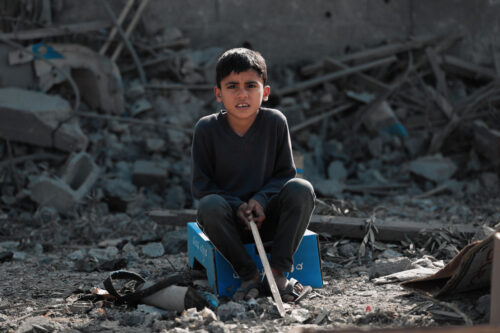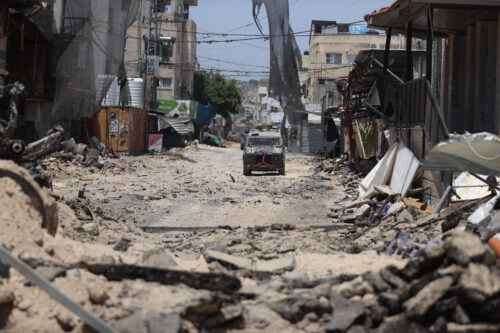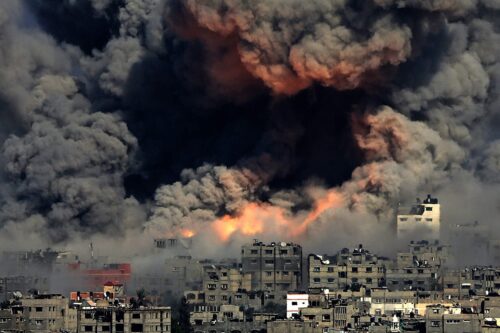This winter will be harsh for Palestinian refugees.
Gaza – Floods, destroyed homes and energy crisis
A state of emergency was declared in Gaza City on Thursday 27th November, following days of extreme weather and severe flooding, exacerbating an already poor humanitarian situation. Sadly, the devastation that extreme weather can cause is not new for Gazans. In December 2013, thousands of families were displaced as a result of the winter storm ‘Alexa’.
Due to the recent conflict, thousands of people have lost everything and are now living in tents and what’s left of their homes, desperately trying to patch up the damage caused by the attack and prevent the cold and rainwater from getting into their houses.
Food prices are rocketing and the majority of households suffer from a complete lack of electricity or running water. Hospitals are being shut down because of a shortage of medicine, fuel and other much needed supplies. The Gaza strip is also enduring a terrible fuel and energy crisis due to the shelling of its sole power plant last summer:
“After being hit several times, the Gaza Power Plant was shut down on July 29.(…) Even in areas where service has resumed, outages exceed 18 hours per day, severely disrupting the provision of basic services including health and water throughout Gaza.”[fusion_builder_container hundred_percent=”yes” overflow=”visible”][fusion_builder_row][fusion_builder_column type=”1_1″ background_position=”left top” background_color=”” border_size=”” border_color=”” border_style=”solid” spacing=”yes” background_image=”” background_repeat=”no-repeat” padding=”” margin_top=”0px” margin_bottom=”0px” class=”” id=”” animation_type=”” animation_speed=”0.3″ animation_direction=”left” hide_on_mobile=”no” center_content=”no” min_height=”none”][1]
These outages have forced Gazans to look for alternatives to cope with the cold such as collecting firewood and using candles. However, these alternatives are risky: last year several Palestinians died from intoxication or lost their lives in house fires caused by candles.
West Bank – Isolation and loss of livestock
Palestinians in the West Bank face below-freezing temperatures, snow and torrential rains. Heavy snow often renders communities across the West Bank inaccessible and leaves thousands of homes without electricity or access to medical care. Last year, communities located across Area C of the West Bank sustained significant damage to already precarious shelters, alongside extensive losses of livestock. In addition, many children are unable to go to school as they don’t have the adequate clothes to protect themselves from the cold. For those who are able to attend class, focusing on their homework proves almost impossible due to the lack of electricity.
Lebanon and Jordan – Inadequate housing and lack of protection from the elements
In the refugee camps in Lebanon and Jordan, below-freezing temperatures, rain and snow will make an already dire situation worse for Palestinians. Thousands will be forced to go through the cold winter months in fragile, inadequate tents, often with only a plastic sheet covering the ground. Many children lack shoes and warm clothes. Last year, heavy rainfall overwhelmed the region’s crude drainage ditches, flooding homes and soaking mattresses and other belongings with freezing water. Hygiene conditions are poor and standing water, mixed with drainage and sewage water, leaves people at high risk of waterborne diseases.

This winter, Interpal is providing blankets, heaters, fuel and warm clothing to families and children as well as food parcels and financial aid to support housing. Will you help us keep Palestinian refugees warm this winter?
[1] Report from OCHA (Office for the Coordination of Humanitarian Affairs)
[/fusion_builder_column][/fusion_builder_row][/fusion_builder_container]
Calculate your Zakat
Confused about how to calculate your Zakat? Try our simple-to-use calculator





